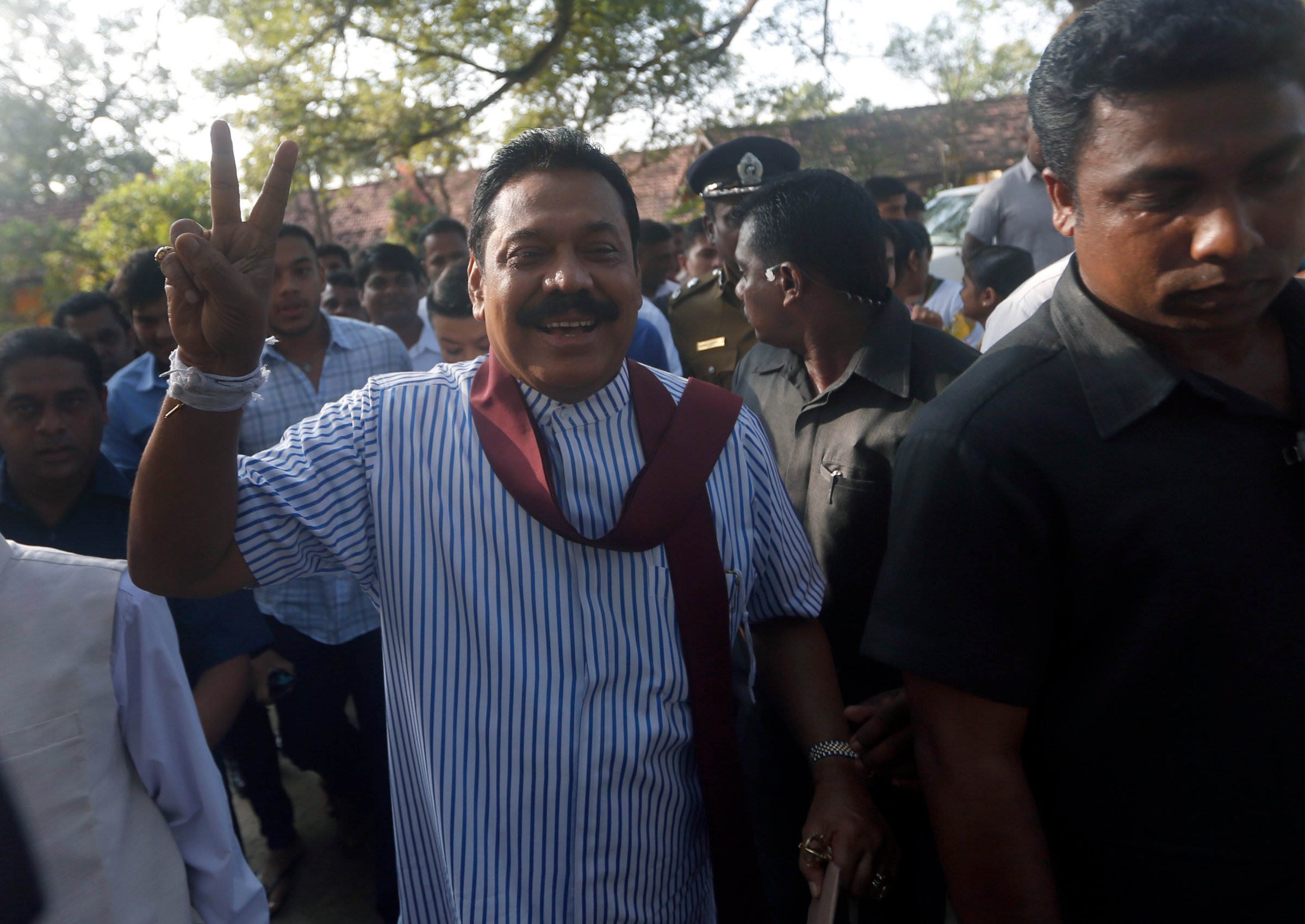
Sri Lanka went to the polls on Thursday, kicking off an election that could result in the biggest shake-up of its government in over a decade.
Thousands lined up to vote at more than 12,000 polling stations across the country after the polls opened at 7 a.m. local time, with local media reporting that most districts had showed a turnout of 30 to 40% within the first three hours.
The snap election was called by Sri Lankan President Mahinda Rajapaksa in November, about two years before the conclusion of his second term, with a view to consolidating the power and control he has been steadily centralizing since he first took the helm in 2005. Rajapaksa’s decisive re-election in 2010, following the 2009 defeat of the separatist Tamil Tigers that ended a 26-year civil war, has been bolstered by steady economic growth and stability in the past four years.
But the straightforward victory he anticipated while calling the election is far from certain, and the president has been reduced to urging voters to elect him, “the devil they know,” over an “unknown angel,” as Reuters reports.
The unknown angel he refers to is Mithripala Sirisena, a former minister and key Rajapaksa lieutenant whose sudden defection in November blindsided the president and was followed by an exodus of dozens of others. The hitherto fractured opposition has since rallied behind Sirisena, who promises to crack down on the corruption and nepotism that many say has set in under Rajapaksa’s rule. His son and two brothers rule alongside him, and several relatives occupy key posts in what academic Razeen Sally called the country’s “one-family show” in a Wall Street Journal column last month.
Should it come to power, the Sirisena-led opposition reportedly plans to do away with the presidency altogether and revert to a British-style parliamentary democracy, according to the Financial Times, undoing the constitutional reforms that allowed Rajapaksa to run for an unprecedented third term.
While Rajapaksa is relying on an uptick in Sri Lanka’s economic growth and the support of the Sinhalese Buddhist majority, Sirisena enjoys an almost unequivocal backing from the island nation’s minority groups including Hindus, Muslims and Christians. The former government minister’s anti-corruption stance has reportedly also appealed to a section of the Sinhalese population, and might just be enough to ensure an upset win.
Thursday’s voting has been dogged by reports of violence against opposition supporters, with organizations like Amnesty International and even the U.S. government expressing concerns. But Election Commissioner, Mahinda Deshapriya, remained confident that there would be no foul play. “Don’t worry about this election, this election will be free and fair,” he told reporters.
Rajapaksa told media he was confident of a win, after casting his vote on Thursday morning. “We will have a resounding victory. That is very clear,” he said.
The truth is anything but.
More Must-Reads from TIME
- Donald Trump Is TIME's 2024 Person of the Year
- Why We Chose Trump as Person of the Year
- Is Intermittent Fasting Good or Bad for You?
- The 100 Must-Read Books of 2024
- The 20 Best Christmas TV Episodes
- Column: If Optimism Feels Ridiculous Now, Try Hope
- The Future of Climate Action Is Trade Policy
- Merle Bombardieri Is Helping People Make the Baby Decision
Write to Rishi Iyengar at rishi.iyengar@timeasia.com